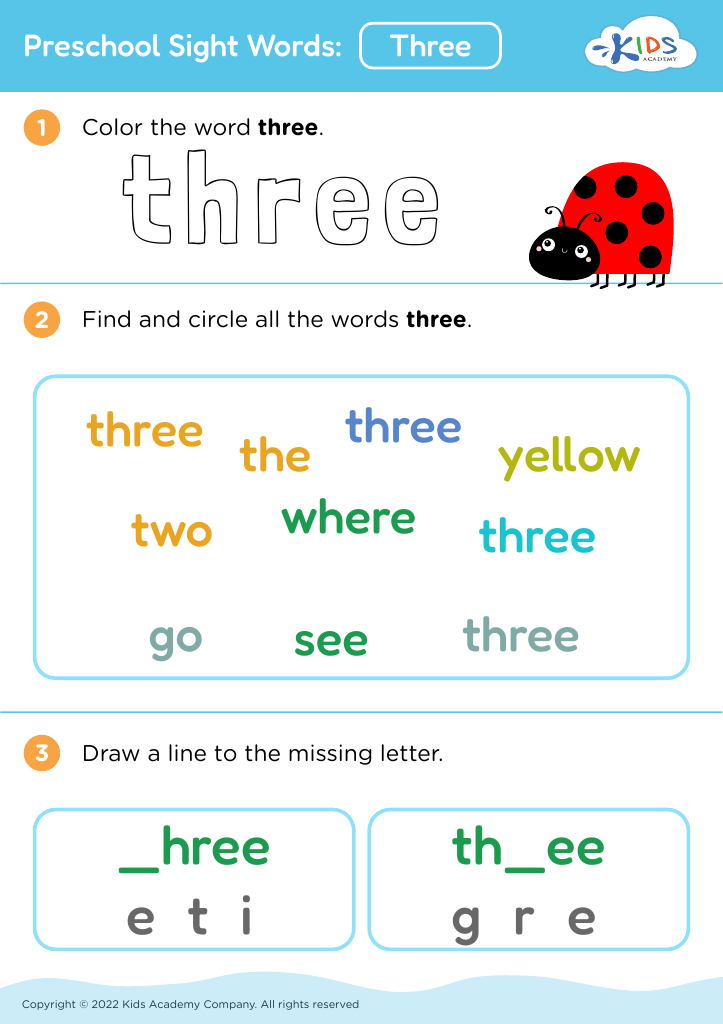Multiplication practice Building Vocabulary Worksheets for Ages 4-7
5 filtered results
-
From - To
Enhance your child’s learning experience with our engaging Multiplication Practice Building Vocabulary Worksheets for ages 4-7. Designed to combine foundational math concepts with vocabulary development, these worksheets offer a fun and interactive way for young learners to familiarize themselves with multiplication terms while improving their reading skills. Packed with colorful illustrations and age-appropriate activities, our resources promote critical thinking and reinforce basic multiplication knowledge. Ideal for classroom use or at-home learning, each worksheet encourages repeated practice to help children master multiplication in an enjoyable setting. Watch your child develop confidence in math and language with our thoughtfully curated materials!
Parents and teachers should prioritize multiplication practice and vocabulary building for children aged 4-7 for multiple reasons. First, establishing strong foundations in multiplication and vocabulary at an early age sets the stage for future academic success. Early exposure to mathematical concepts like multiplication enhances critical thinking and problem-solving abilities, essential skills in later education stages.
Vocabulary building during these formative years is equally important. A rich vocabulary aids children in improving reading comprehension, which is crucial for all subjects. The ability to understand and articulate ideas expands learning opportunities and fosters better communication skills.
Moreover, engaging in multiplication practice transforms what might seem like a daunting task into enjoyable games or daily activities, making learning fun. When children see learning as an engaging experience, they develop a positive attitude toward education, promoting a lifetime habit of inquiry and knowledge seeking.
Ultimately, parents and teachers play crucial roles in this developmental journey. By incorporating multiplication practice and vocabulary enhancement into daily activities, they empower children to explore, understand, and engage with the world around them confidently. This holistic approach nurtures their intellectual, social, and emotional growth, laying a strong foundation for lifelong learning.





















.jpg)










